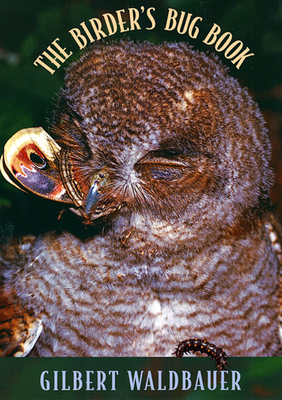

 Harvard University Press
Harvard University Press
The Birder's Bug Book


Key Metrics
- Gilbert Waldbauer
- Harvard University Press
- Paperback
- 9780674002067
- 8.63 X 6.12 X 0.91 inches
- 1.03 pounds
- Nature > Animals - Insects & Spiders
- English
 Secure Transaction
Secure TransactionBook Description
When the first birds appeared on earth about 150 million years ago, the insects were here to greet them. Inevitably the two groups came to exploit each other, and as the eons passed, they became increasingly enmeshed in a complex web of interrelationships--birds eating bugs, blood-sucking insects feeding on birds, parasitic insects infesting birds, and birds struggling to rid themselves of the parasites. In The Birder's Bug Book Gilbert Waldbauer, a veteran entomologist and an accomplished birdwatcher, describes these and many other interactions between birds and insects. A beguiling blend of anecdote, ornithology, and entomology, rendered in the engaging style that has won over scientists and amateur naturalists alike, this book is an excellent introduction to the intricate interplay of insects and birds.
With the birds and the bees it's not so much sex as mutual exploitation. Most birds feed mainly on insects, taking them from the air, from vegetation, and from deep within wood. The insects fight back by camouflaging themselves or by mimicking insects that birds find unpalatable. Many insects suck blood from birds or infest them, lodging in their feathers and nests. The birds fight back by preening, by taking dust or water baths to discourage lice and other bugs, and even by rubbing themselves with ants, whose formic acid repels many insects.
As entertaining as it is informative, The Birder's Bug Book will appeal to all those interested in birds, bugs, and natural history. Profusely illustrated with drawings and color photographs, this book offers a cornucopia of facts about the life history and behavior of insects and birds.
Author Bio
Gilbert P. Waldbauer (1928- ) served as Professor of Entomology (1960-1995) at the University of Illinois. He studied agricultural pests, pest management, mimicry, and insect mating but he also wrote books on biology and entomology for the general public. Throughout his career Professor Waldbauer worked internationally as a researcher and government consultant.
Gilbert P. Waldbauer was born on April 18, 1928, in Bridgeport, Connecticut. He served in the U.S. Army Honor Guard to General Douglas MacArthur from 1946 to 1947, and was stationed in Tokyo, Japan, during this time. Upon returning to the U.S., Waldbauer completed his Bachelor of Science degree in entomology in 1953 at the University of Massachusetts. He then earned his Master of Science and Ph.D. in entomology at the University of Illinois at Urbana-Champaign, in 1956 and 1960, respectively.
Waldbauer served as a professor of entomology (1960-1995). He toured the country speaking about natural history for the Massachusetts Conservation Council (1952-1953). He was an associate member of the Center of Zoonoses Research (1963-1964) and a research affiliate in entomology at the Illinois State Natural History Survey (1970). Internationally, he was a visiting scientist at the Instituto Colombiano Agropecuario in Palmira, Columbia (1971); a senior scientist at the International Rice Research Institute in the Philippines (1978-1979); and a USAID consultant to the Pakistan Agricultural Research Council in Islamabad, Pakistan (1985).
Professor Waldbauer is nationally and internationally recognized for his research into the adaptive significance of individual and group behavior among insects, including cecropia moths, bean leaf beetles, whiteflies, South American stink bugs, and corn earworms. During his career, Waldbauer authored and co-authored more than 100 academic articles. He also served as a reviewer for the National Science Foundation, and he was awarded grants from U.S. Department of Agriculture and the National Geographic Society for his research on agricultural pests and pest management.
Since his retirement, Waldbauer has published several popular science books, including Insects through the Seasons (1996), The Handy Bug Answer Book (1998), Birder's Bug Book (1998), Millions of Monarchs, Bunches of Beetles: How Bugs Find Strength in Numbers (2000), What Good are Bugs? Insects in the Web of Life (2003), Insights from Insects: What Bad Bugs Can Teach Us (2005), A Walk around the Pond: Insects in and over the Water (2006), and How Not to Be Eaten (2012).
Source: University of Illinois Archives
Videos


Community reviews
Write a ReviewNo Community reviews